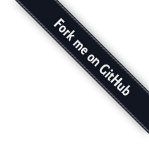Org mode has built-in supporting for exporting citations starting version 9.5 . See Org Cite Citations for more info.
The Pandoc Citations are prefixed with the @ character. If the
citation is @foo, that particular foo reference much be present in
one of the specified bibliography files.
Users need to have the pandoc executable1 present in the PATH.
Enabling #
Pandoc based citation parsing is enabled by setting the
#+hugo_pandoc_citations: keyword or :EXPORT_HUGO_PANDOC_CITATIONS:
subtree property to t.
If a post has neither nocite meta-data, nor valid citation keys
(@foo), the Pandoc parsing step is skipped even if the above
Pandoc Citations parsing option is enabled.
Bibliography #
Bibliography files (example.bib) are specified using the
#+bibliography: keyword or :EXPORT_BIBLIOGRAPHY: subtree
property. It is mandatory to specify at least one bibliography file.
Multiple comma-separated bibliography files can be specified.
Note that the path to these bibliography files is relative to the Org file directory.
Nocite #
nocite is a special Pandoc-specific meta-data which can be used to
add extra citations even when they are not referenced in the post. It
is set like any other list-type custom front-matter parameter
(i.e. :LIST_PARAM '(ELEMENT1 ELEMENT2)). See its example below.
Link citations #
link-citations is a special Pandoc-specific meta-data which, when
set to true, enables linking of the citations in the post body to
the corresponding reference in the “References” section. It is set
like any other single-value custom front-matter parameter
(i.e. :LIST_PARAM VALUE). See its example below.
Specifying Citation Style Language (CSL) #
By default, Pandoc uses Chicago Manual of Style author-date as the
Citation Style Language (ref). This can be customized by using the
Pandoc-specific meta-data csl to specify the new CSL file. It is set
like any other single-value custom front-matter parameter
(i.e. :LIST_PARAM VALUE). See its example below.
Note that the path to the CSL file is relative to the Org file directory.
Removal of Pandoc-specific meta-data #
The Pandoc-specific meta-data mentioned above (nocite,
link-citations and csl) are added using HUGO_CUSTOM_FRONT_MATTER
only for Pandoc to parse.
Once they are used by pandoc, those front-matter keys are deleted in
the final Markdown file (Hugo has no use of those Pandoc-specific
front-matter keys).
Auto-insertion of headings #
When one or more citations are found by Pandoc, a top-level “References” section with matching references is automatically added at the end of the post.
By default, ox-hugo will insert a Markdown heading with the string
defined in org-hugo-pandoc-cite-references-heading before that
Pandoc-inserted References section. It’s default value is
References {#references}".
If you want to prevent this Markdown heading auto-insertion, set this
variable to an empty string ("").
Example #
Here is a small example using Pandoc Citations:
* Citations Example
:PROPERTIES:
:EXPORT_FILE_NAME: citations-example
:EXPORT_HUGO_PANDOC_CITATIONS: t
:EXPORT_BIBLIOGRAPHY: cite/bib/bib1.bib, cite/bib/bib2.bib
:EXPORT_HUGO_CUSTOM_FRONT_MATTER: :nocite '(@cite3 @cite4)
:EXPORT_HUGO_CUSTOM_FRONT_MATTER+: :link-citations true
:EXPORT_HUGO_CUSTOM_FRONT_MATTER+: :csl cite/csl/my-custom-csl-format.csl
:END:
Here is a test example file with an in-text citation where someone
important says something important (e.g. @cite1). And here is
another bit of blah with a footnote citation.[fn:1]
* Footnotes
[fn:1] See [@cite2].
- Note
- Above example assumes
cite/bib/bib1.bib,cite/bib/bib2.bibandcite/csl/my-custom-csl.format.cslto exist in the same directory containing the Org file.
See Pandoc Manual – Citations for more details.
How Pandoc Citations work #
ox-hugofirst exports the Org file/subtree to a Markdown file as usual.pandocthen expands the@foocitations in that file and rewrites the whole Markdown file from the AST parsed by it.
-
The Pandoc Citations feature was last tested with Pandoc version 2.16.2. If you are running an older version, the quickest way to install might be to simply download the latest release archive from Pandoc releases, extract it and put the
pandocexecutable in one of the directories in your PATH. ↩︎
